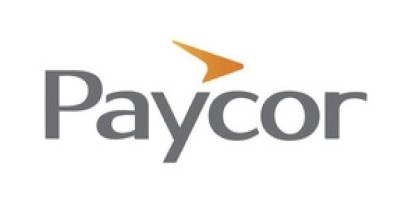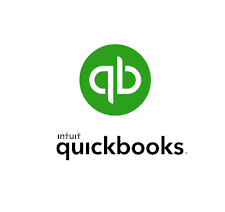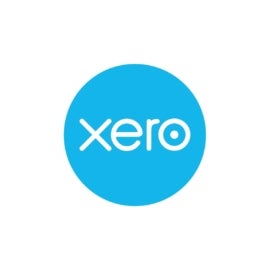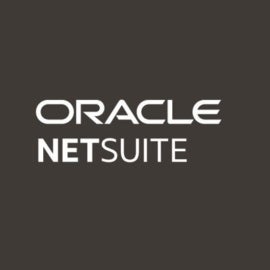The Top FreshBooks Competitors and Alternatives for 2023
Freshbooks is a popular accounting and invoicing software for small businesses. Many small businesses love Freshbooks for its excellent invoicing features, tools like time tracking and the modern, easy-to-learn user interface. Still, Freshbooks doesn’t work for everyone. It comes with potentially high costs and limits on the clients you can bill ― and it may not have all the features you want in accounting software.
So if Freshbooks isn’t quite right for your business, you might prefer one of the best alternatives to FreshBooks instead.
Jump to:
Top Freshbooks competitors and alternatives: Comparison table
Similar to Freshbooks, all its competitors all offer core accounting features like income and expense tracking, invoicing, tax help and basic reporting. So as you choose accounting software, think about features your business needs (like inventory management or mileage tracking) and features that will make your life easier (like automation or robust customer support).
| Starting price | Accounting automation | Inventory management | 24/7 support option | ||
|---|---|---|---|---|---|
| QuickBooks Online | $15.00/mo. | Yes | Yes | Yes | |
| Wave Accounting | $0.00 | Yes | No | No | |
| Xero | $13.00/mo. | No | Yes | Yes | |
| Zoho Books | $0.00 | Yes | Yes | No | |
| Sage Accounting | $7.00/mo. | No | Yes | No | |
| Oracle NetSuite | Custom | Yes | No | Yes |
Plan pricing and details up to date as of 6/16/2023.
1
Paychex

Paychex is a cloud-based payroll management system offering payroll, HR, and benefits management systems for small to large businesses. Paychex covers payroll and taxes, employee 401(k) retirement services, benefits, insurance, HR, accounting, finance and Professional Employer Organization (PEO).
Learn more
2
Paycor

Payroll can be a time-consuming, administrative task for HR teams. Paycor’s solution is an easy-to-use yet powerful tool that gives you time back in your day. Quickly and easily pay employees from wherever you are and never worry about tax compliance again. Key features like general ledger integration, earned wage access, AutoRun, employee self-service and detailed reporting simplify the process and help ensure you pay employees accurately and on time.
Learn more
Top Freshbooks competitors
Let’s take a closer look at six of our favorite platforms similar to Freshbooks. We’ll dig into standout features, pros, cons and pricing to help you find the right Freshbooks alternative for you.
QuickBooks Online: Best for accounting reports

QuickBooks Online has a lot in common with FreshBooks ― from the similar name to their cloud-based accounting platforms. But compared to FreshBooks, QuickBooks Online has much more powerful reporting features. All QuickBooks plans give you basic reports like profit and loss statements and balance sheets. Higher-tier plans give you more specialized analysis, like inventory reports and profitability reports.
Plus, power QuickBooks users can create customized reports and display them on attractive dashboards. Or you can sync your QuickBooks data with Excel for even more power and customization. It all adds up to an accounting software that makes it wonderfully easy to view, manage, and make decisions using your accounting data.
- Unlimited estimates and conversions to invoices.
- Tax management, including tax deductions, sales tax, and 1099s.
- Mileage and time tracking.
- Job costing and project reporting.
Pros
- Free guided setup with a QuickBooks expert.
- One-click tax filing for 1099s.
- Broad spectrum of accounting tools.
Cons
- High starting prices for plans.
- Complaints of poor customer support.
- Sudden price increases.
Pricing
QuickBooks Online has four different plans, from basic accounting to enterprise-level tools:
- Simple Start costs $30 per month for 1 user.
- Essentials costs $55 per month for 3 users and adds bill management.
- Plus costs $85 per month for 5 users and includes inventory management.
- Advanced costs $200 per month for 25 users and adds automation, 24/7 support and more.
You can also add bookkeeping services for an additional cost.
For more information, read the full Quickbooks review.
Xero: Best for document handling

If your accounting needs include lots of receipts, bills, bank statements or other documents, then take a closer look at Xero. Sure, other accounting software offers receipt capture. But often that feature is limited to a higher-tier plan or priced as an add-on. Xero, on the other hand, includes data capture through Hubdoc on all plans. Scan, email or take a photo of your document, and Xero will add that information to your accounting.
Xero also helps you manage your uploaded documents. It offers cloud file storage so you can find documents without digging through papers. You can even set up automatic backup so you never lose important document data. The highest-tier plan also lets you submit and reimburse expenses with your scanned receipts. So for document-heavy businesses, Xero may do more than FreshBooks to help you simplify and organize.
Features
- Built-in bill and receipt capture through Hubdoc.
- Expense management for spending and reimbursement.
- Project and time tracking.
- Cloud file storage for financial documents.
Pros
- Easy receipt capture on all plans.
- 24/7 customer support for all users.
- Extra accounting tools like inventory, contact and file management.
Cons
- Limits on quotes and invoices for low-tier plan.
- No native payroll options.
- No annual billing option or discount.
Pricing
Xero has three plans:
- Early costs $13.00 per month and limits you to 20 invoices.
- Growing costs $37.00 per month and allows for unlimited invoices.
- Established costs $35 per month and adds project tracking and expense claims.
You can also add payroll (through Gusto) for an extra $40 per month.
For more information, read the full Xero review.
Zoho Books: Best for relationship management

Like FreshBooks, most accounting software makes it easy to send invoices ― but Zoho Books goes a step further. It lets you manage incoming invoices with its excellent vendor management tools. You can set up vendor portals, where vendors can manage transactions, add invoices and even add comments to documents. In other words, vendors can take care of all their business in one place, meaning fewer emails to handle.
Zoho Books offers great customer portals too, where clients can pay invoices, view quotes and update their personal information. You can also use your customer portals to collect data, like asking for ratings and comments. Zoho Books streamlines your relationship management so you can spend more time on other accounting matters.
Features
- Banking, expenses, invoicing and other key accounting features.
- Portals for customers and vendors to manage transactions.
- Automation for recurring accounting tasks.
- Project time and expense management.
Pros
- Free plan for one user and accountant.
- Many plan options for different user needs.
- Option to add more users for a low monthly fee.
Cons
- Invoice limits on lower-tier plans.
- Very expensive high-tier plans.
- No way to get 24/7 customer support.
Pricing
Zoho Books offers six different plans, with prices from free to pretty expensive:
- Free has no monthly cost, but limits you to 1 user and 1,000 invoices per year.
- Standard costs $15 per month and gives you 3 users and 5,000 invoices.
- Professional costs $40 per month and allows for up to 5 users.
- Premium costs $60 per month and lets you have 10 users.
- Elite costs $120 per month and adds advanced inventory control.
- Ultimate costs $240 per month and allows for up to 15 users and advanced analytics.
You can also pay an extra $2.50 per month to add another user on any plan.
Sage Accounting: Best for multi-currency accounting

If your business operates in more than one country, you’ll want specialized features for handling different currencies in your accounting. And that’s what Sage Accounting delivers ― at a lower price than other accounting platforms. For just $25 per month, you get all the tools you need to handle multiple currencies. Create invoices in different currencies, monitor exchange rates, and view your bank accounts in any country.
Other accounting platforms tend to offer multi-currency accounting only on premium, top-tier plans. But with Sage Accounting, you don’t need an enterprise-level budget to balance the books across currencies. So even smaller startups that happen to buy or sell across national lines can get all the accounting tools they need.
Features
- Unlimited invoices and estimates.
- Workflow automation for recurring invoices.
- Inventory management and reporting.
- Cash flow forecasting.
Pros
- Unlimited users on higher-tier plan.
- Moderately priced plans with big initial discounts.
- Multi-currency accounting for less than competitors.
Cons
- Complaints of outdated user interface.
- Extra cost for receipt capture.
- Reports of steep learning curve.
Pricing
Sage Accounting has just two plans:
- Sage Accounting Start costs $10 per month for 1 user.
- Sage Accounting costs $25 per month for unlimited users, analytics, quotes, and more.
While Sage does offer a free three-month trial of AutoEntry receipt capture, you have to pay extra for that feature in the long run.
For more information, read the full Sage review.
Oracle NetSuite: Best for scaling and enterprise needs

While FreshBooks does let you customize an enterprise plan for your business, few accounting platforms have the scalability of Oracle NetSuite. It’s an incredibly powerful enterprise accounting software that includes a core accounting platform plus optional modules for things like payroll, human resources and global business management. So whether you need just accounting or advanced extras, Oracle NetSuite can meet your needs.
Plus, NetSuite scales even further with SuiteApps ― integrations that offer more functionality. With apps for taxes, shipping, lease accounting, contract management and more, you can customize NetSuite to work for any industry. Likewise, NetSuite can accommodate multiple languages, tax laws and currencies, making it ideal for businesses expanding across the globe. If you think your business will outgrow FreshBooks, you may find a better fit with Oracle NetSuite.
Features
- Accounting, inventory, order and tax management.
- Adds-ons for CRM, marketing, HR and more.
- Default and custom reporting tools.
Pros
- Extensive accounting features.
- Option to add many non-accounting features.
- Ability to scale to enterprise level.
Cons
- No pricing info without a custom consultation.
- Complaints of high product costs.
- Overwhelming features and options for small businesses.
Pricing
NetSuite charges an annual fee. Your business’s fee depends on what modules you want and how many users you have. You’ll need to set up a consultation to get a quote for your business.
Is Freshbooks worth it?
Freshbooks is a worthwhile accounting software for businesses that need a full suite of invoicing tools on top of accounting essentials. Freshbooks eliminates the need to find a separate payment processor or manually create and monitor invoices. That makes it a real time saver for freelancers and other B2B businesses.
That said, you may want to look elsewhere if you have a large number of clients, since Freshbooks limits how many clients you can bill on some plans. Likewise, Freshbooks may not be worth it if you need to add multiple users, as the costs can add up quickly.
Freshbooks pros and cons
Plenty of business owners use and rave about Freshbooks. But you’ll need to compare its pros and cons to the benefits and drawbacks of its competitors to decide if Freshbooks is a good choice for you.
Freshbooks pros
- Powerful invoicing features and customization.
- Time tracking on all plans.
- Clean, user-friendly interface.
- Multiple invoice payment options.
Freshbooks cons
- Limits on billable clients by plan.
- Lack of double-entry accounting on Lite plan.
- High cost to get additional users.
Freshbooks pricing
Freshbooks offers four plans for its accounting software:
- Lite costs $17 per month and limits you to 5 billable clients.
- Plus costs $30 per month and lets you bill up to 50 clients.
- Premium costs $55 per month and allows for unlimited billable clients.
- Select has custom pricing depending on your enterprise needs.
You can add more team members to any plan for $11 per user per month, and you can get an advanced virtual payment terminal for an extra $20 per month. You can also get Gusto Payroll as an add-on.
Freshbooks has regular sales with deep discounts (like 50% off your first free months). And you can always save 10% by choosing annual billing instead of monthly payments.
Do you need an alternative to Freshbooks?
You may need an alternative to Freshbooks if you want to add multiple team members to your accounting software without paying too much ― or if Freshbooks doesn’t have an accounting feature you need.
For more robust accounting reports, check out QuickBooks Online as an alternative. Or if you need something cheaper than Freshbooks to fit your budget, Wave Accounting’s free software may be the best choice. Xero accounting makes it easier than Freshbooks to capture and manage financial documents, while Zoho Books makes it easier to manage customer and vendor relationships. Expanding businesses may prefer alternatives like Sage Accounting for multi-currency accounting or Oracle Netsuite for enterprise-level accounting tools.
Methodology
Before writing our review of Freshbooks and its competitors, we dug deep into each software. We looked at customer reviews and complaints, analyzed prices, compared features, reviewed demos and evaluated factors like customer support and plan options.
1
Paychex

Visit website
Paychex is a cloud-based payroll management system offering payroll, HR, and benefits management systems for small to large businesses. Paychex covers payroll and taxes, employee 401(k) retirement services, benefits, insurance, HR, accounting, finance and Professional Employer Organization (PEO).
Learn more about Paychex
2
Paycor

Visit website
Payroll can be a time-consuming, administrative task for HR teams. Paycor’s solution is an easy-to-use yet powerful tool that gives you time back in your day. Quickly and easily pay employees from wherever you are and never worry about tax compliance again. Key features like general ledger integration, earned wage access, AutoRun, employee self-service and detailed reporting simplify the process and help ensure you pay employees accurately and on time.
Learn more about Paycor
For all the latest Technology News Click Here
For the latest news and updates, follow us on Google News.
